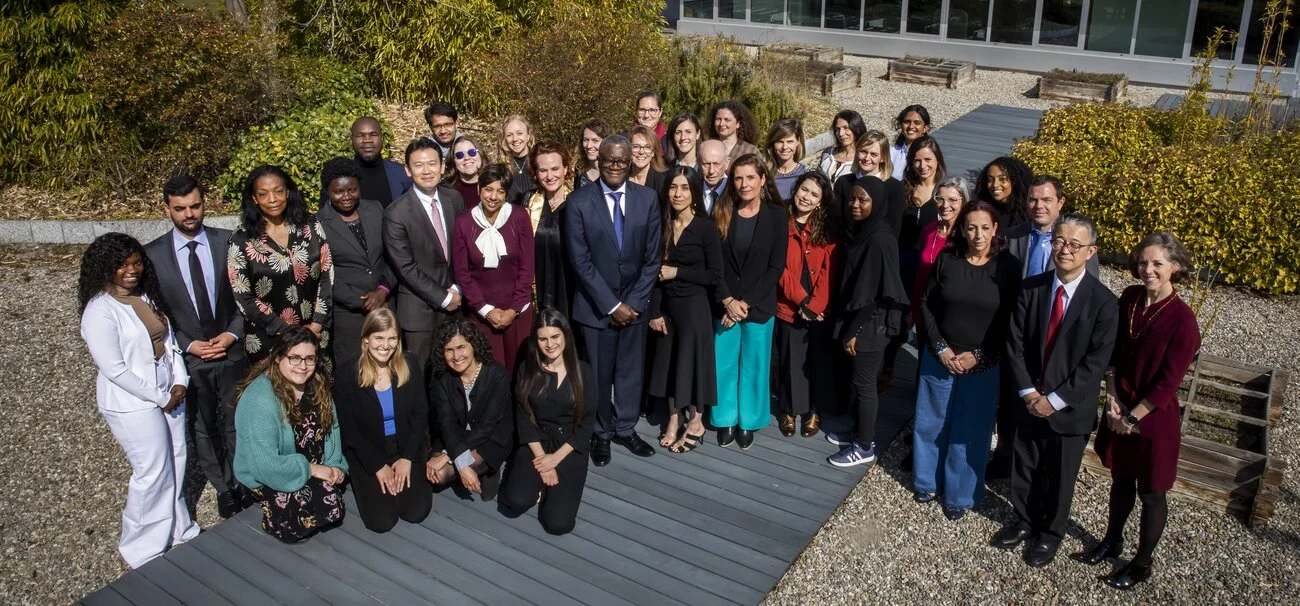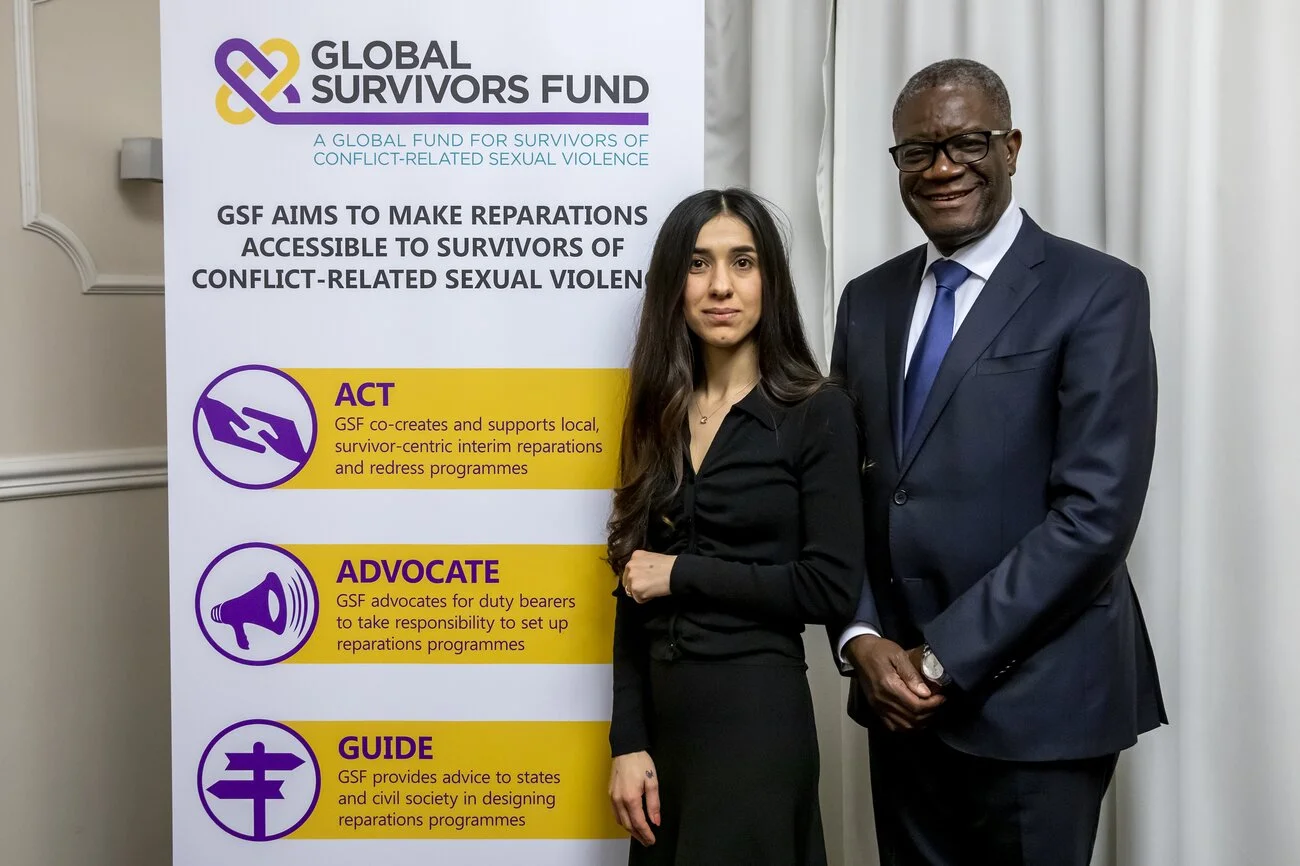Who we are
About us
Our mission is to enhance access to reparations for survivors of conflict-related sexual violence around the globe, thus responding to a gap long identified by survivors.
We act to provide interim reparative measures in situations where States or other parties are unable or unwilling to meet their responsibilities. We advocate for the legally responsible parties (duty-bearers) and the international community to develop reparation programmes. We also guide States and civil society by providing expertise and technical support for designing reparation programmes. Our survivor-centred approach is the cornerstone of our work.

Our key principles
1
Co-creation
Survivors, as right-holders, know best what they want and what they need when it comes to repairing the harm they suffered. This is why they have an effective influence on our decision making, and play an active role in the conceptualisation, design, implementation, monitoring, and evaluation of everything we do.
2
Contextualised solutions
As each conflict or post-conflict situation presents a unique set of challenges and opportunities, we make sure that our projects are contextualised and tailor-made in collaboration with survivors and local actors.
3
Multi-stakeholder collaboration
In every project, we work with a broad network of partners like survivors’ groups, civil society organisations, States, United Nations (UN) representatives, and experts. This approach encourages relevant stakeholders to further scale up their efforts in an effective and collaborative way.
Related content
Global Reparations Study
See how we assess needs worldwide.Our team
Meet the team of experts working to fulfil our social mission.GSF milestones
February 2024
Survivors in Iraq gather in Sinjar to inaugurate their memorial statue, marking the end of the interim reparative measures project in Iraq.
September 2023
Survivors in Guinea inaugurate their dedicated centre, marking the end of our first interim reparative measures project.
September 2023
GSF hosts its third side-event at the UN General Assembly on the affordability of reparations.
April 2023
GSF hosts a study visit in Geneva for a delegation from Ukraine to push for a law on an urgent interim reparation programme for survivors.
November 2022
GSF hosts an event at the UK’s Conference on Prevention of Sexual Violence in Conflict Initiative in London and presents its first impact report on interim reparative measures projects in Guinea and the DRC.
September 2022
GSF returns to the UN General Assembly and hosts its second side-event on the importance of co-creation with survivors.
July 2022
GSF, along with the Dr. Denis Mukwege Foundation, signs a Memorandum of Understanding with Ukraine’s Office of the Vice Prime Minister for European and Euro-Atlantic Integration, the Government Commissioner for Gender Policy on establishing an urgent interim reparations programme during the ongoing conflict in Ukraine.
March 2022
Publication of the first Global Reparations Study for Bosnia and Herzegovina, in partnership with Trial International.
September 2021
GSF hosts its first side-event at the UN General Assembly presenting the preliminary findings of the first 16 countries identified for the Global Reparations Study programme.
October 2019
GSF is established in Geneva, Switzerland.
Launch of the first interim reparative measures projects in Guinea and the DRC.
December 2018
Dr Denis Mukwege and Nadia Murad receive the Nobel Peace Prize.
Our founders
Nadia Murad
After she survived ISIS captivity in her homeland of Sinjar, Iraq, Nadia Murad started to share her story to raise awareness on ISIS and its genocidal campaign against the Yazidi community. She has become a powerful advocate for women in conflict settings and survivors of conflict-related sexual violence worldwide through her organisation Nadia’s Initiative.
Dr Denis Mukwege
Through his experience as a gynaecologist in the Democratic Republic of the Congo (DRC), Dr Denis Mukwege witnessed first-hand the life-long damage caused by conflict-related sexual violence as well as the importance of reparations for survivors to rebuild their lives. He has become the world’s leading specialist in the treatment of wartime sexual violence and a global campaigner against the use of rape as a weapon of war.
Although reparation is a right under international law, survivors rarely benefit from judicial or administrative reparations. As they both received the Nobel Peace Prize for their individual efforts to end sexual violence as a weapon of war in armed conflict in December 2018, Dr Mukwege and Nadia Murad decided to join forces in founding GSF to show that reparations are feasible, accessible, and transformative for survivors.
